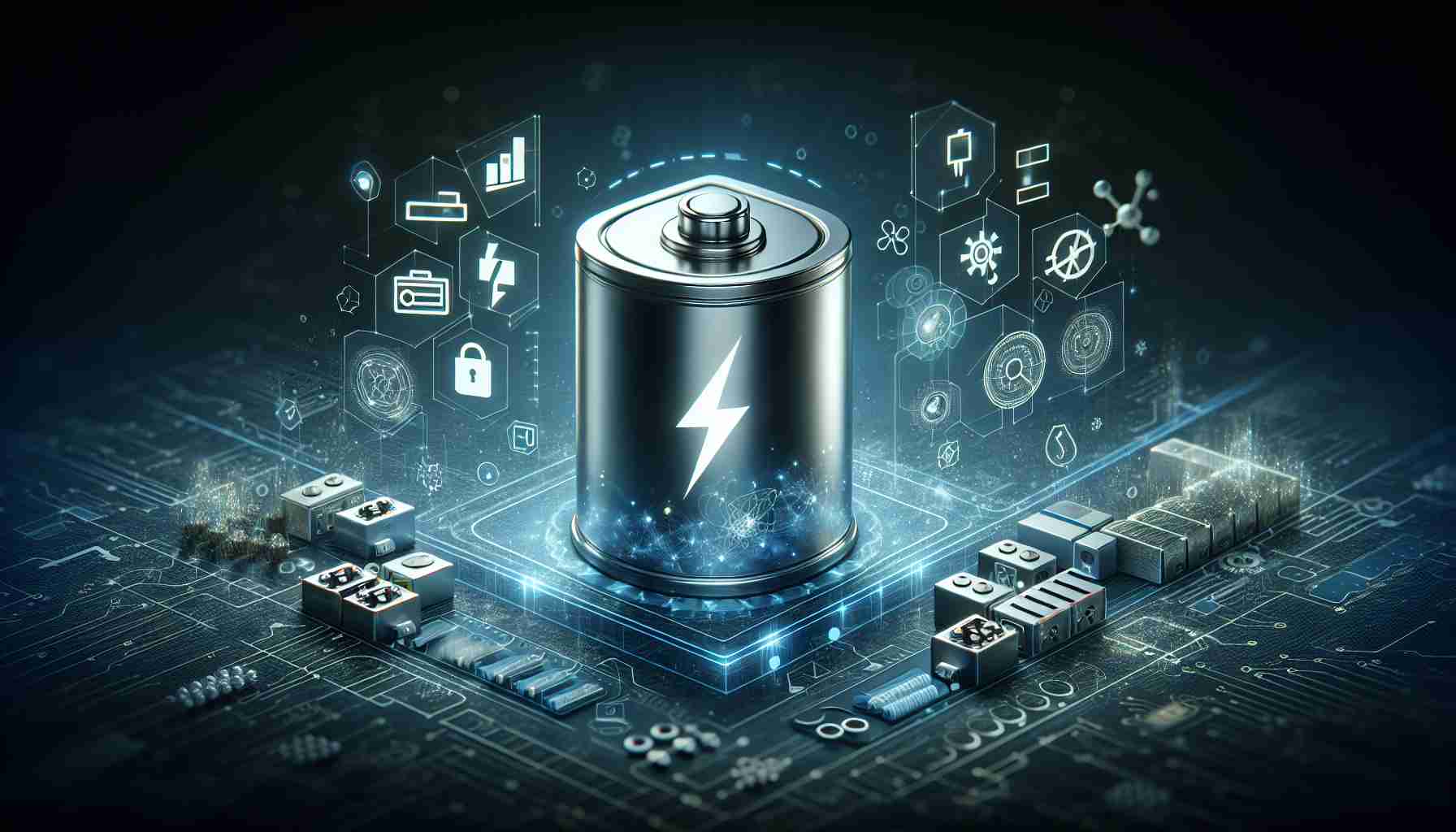Huawei Sets the Stage for a Battery Revolution
In a groundbreaking move, Huawei has introduced a patent for a sulfide-based solid electrolyte—a pivotal advancement in solid-state battery technology. This innovation has the potential to transform lithium-ion batteries used in various applications, particularly electric vehicles and energy storage systems.
Traditional batteries suffer from the degradation of liquid electrolytes, posing challenges in lifespan and safety. Huawei’s ingenious approach swaps these liquid components for solid electrolytes, promising extended battery durability, improved safety, and superior performance.
These sulfide-based solid electrolytes boast impressive attributes: they provide high energy density, facilitate rapid charging and discharging, and perform excellently under low temperatures. Significantly, they reduce the risk of thermal runaway, addressing a major safety concern in conventional lithium-ion batteries.
As the demand for sustainable energy solutions grows globally, Huawei’s solid-state battery technology represents a critical leap forward. It aims to overcome the limitations of current battery technologies, potentially boosting the adoption of electric vehicles and renewable energy sources.
Fueling the Future of Battery Tech
In parallel, the smartphone industry is buzzing with innovations to create faster-charging, longer-lasting batteries. Leading companies are experimenting with materials such as lithium-sulfur and graphene, while many have adopted silicon-carbon batteries for their superior performance.
A Chinese startup also made headlines with a nuclear battery potentially capable of powering a smartphone for up to 50 years. Meanwhile, the EU has introduced standards promoting sustainability and recyclability in battery production. These advancements demonstrate a collective push towards a more environmentally friendly and efficient energy future.
What Huawei’s Sulfide-Based Solid Electrolyte Means for Global Energy Solutions
The technological advancements in battery development are not only reshaping industries but also impacting everyday lives across the globe. Huawei’s recent breakthrough with their sulfide-based solid electrolyte presents both exciting possibilities and thoughtful considerations for the future. While the original introduction of solid-state batteries aimed at revolutionizing battery technology for electric vehicles and energy systems, the ripple effects are far-reaching and diverse.
Revolutionary Impact on Communities
The shift towards solid-state batteries could significantly alter the landscape for communities heavily reliant on energy storage systems. For rural areas and regions without stable electricity access, improved battery performance extends the duration and reliability of stored renewable energy. It can empower remote locations with solar panel installations to store more energy and tap into alternative power resources, reducing reliance on inconsistent grid systems.
Economic and Environmental Controversies
As with any significant technological shift, there are both advantages and disadvantages that need to be considered. The environmental benefits include reduced risk of liquid electrolyte leakage and the potential for decreasing e-waste through longer battery lifespans. However, the economic impacts may include market disruptions, with existing lithium-ion manufacturers needing to evolve alongside these groundbreaking advancements, possibly affecting jobs and requiring new skill sets.
The extraction and sourcing of materials for solid electrolytes, while promising, may also raise environmental and geopolitical concerns. As demand increases, collaborators must ensure responsible mining practices that respect ecological and human rights.
Questions and Future Implications
With all these revolutionary advancements, several questions emerge:
– How quickly can this technology be commercialized, and what costs are involved?
This will depend on the scalability of production processes and the adaptability of the existing manufacturing infrastructure.
– Will these new technologies lead to a digital divide where only affluent societies benefit initially?
It is crucial for policy-makers and corporations to develop inclusive strategies that ensure equitable access to emerging technologies.
– Can lifecycle considerations for production and recycling lead to genuinely sustainable solutions?
Ongoing research is vital to bolster recycling methods and material sourcing to minimize environmental footprints.
Clickbait Title: Could Your Next Electric Car Last Decades Without a Battery Replacement?
Fascinating Facts and Alternatives
– Huawei’s innovation contributes to the plethora of alternate battery technologies under exploration, such as lithium-sulfur and graphene-based batteries, which each have unique strengths like high-capacity storage and faster charge times.
– One must note the intriguing potential of nuclear batteries, as evidenced by some startups claiming the ability to create batteries with multi-decade lifespans, a strong contender for powering remote devices.
For those interested in learning more about battery innovations and energy solutions, reliable starting points include Huawei and other energy-focused domains highlighting similar technological strides.
In conclusion, while Huawei’s sulfide-based solid electrolytes for solid-state batteries represent a seismic shift in both technology and market dynamics, it prompts necessary discussions around scalability, inclusivity, and sustainability. As solutions emerge, society must navigate these advancements wisely to harness the full potential of new energy paradigms.







